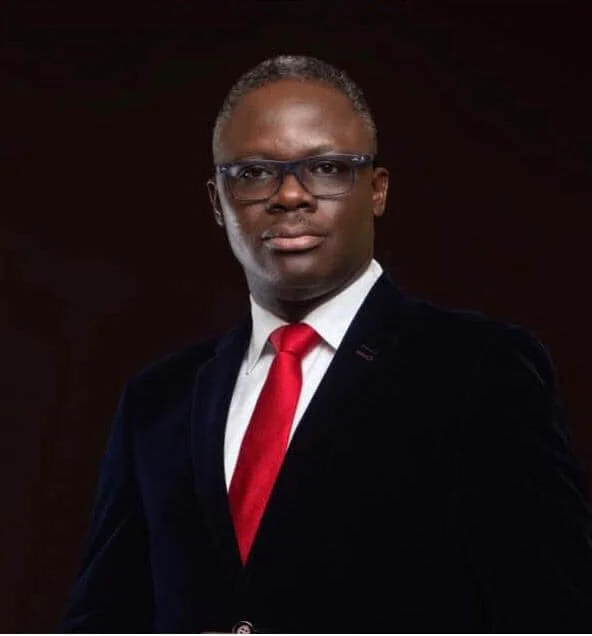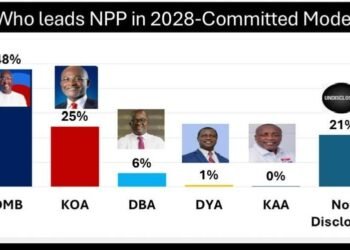Legal expert Samson Lardy Anyenini has criticized a troubling trend in Ghana’s political discourse, highlighting the governing party’s campaign strategy of discrediting the opposition.
He noted that it has become common for the ruling party to aggressively push the narrative that the opposition achieved “nothing” or “nothing good” during its time in government and is incapable of making meaningful contributions if given another opportunity.
“The opposition also sees but persists, from day one, in telling people the governing party has done NOTHING or nothing good. The duopoly picks their ‘best’ hands. These are always accomplished individuals”.
Samson Lardy Anyenini
According to Anyenini, this approach is not only misleading but also detrimental to healthy democratic competition.
Such rhetoric, he argued, shifts political debate away from constructive discussions on policy and national development. Instead, it fosters a culture of disinformation and partisan animosity, which ultimately undermines public trust in governance.
He emphasized that political campaigns should focus on presenting credible policy alternatives, showcasing achievements, and offering solutions to national challenges.
Discrediting opponents with baseless claims, he argued, does little to advance Ghana’s democratic progress and instead erodes the quality of political engagement in the country.
Legal expert Samson Anyenini has expressed concern over the reckless abuse and outright defamation that characterizes Ghana’s political campaigns, particularly by the two major political parties — the New Patriotic Party (NPP) and the National Democratic Congress (NDC).
He lamented that both parties are guilty of engaging in smear tactics aimed at discrediting opposing candidates, often resorting to character assassination rather than focusing on substantive issues.
According to Anyenini, this toxic practice has become a persistent feature of Ghanaian politics, where political discourse is reduced to personal attacks and unfounded allegations.
He emphasized that such conduct is harmful to the nation’s democratic development, as it shifts attention away from policy debates and the pressing needs of the people.

He called for a shift in political culture, urging political actors, party leaders, and campaign strategists to prioritize decency and integrity in their messaging.
Anyenini argued that Ghana deserves a political environment where candidates are assessed based on their competence, track record, and vision for the future — not on baseless attacks and defamatory rhetoric.
“Things must change in our society,” he stated, underscoring the need for electoral reforms, stricter enforcement of defamation laws, and a more responsible media landscape that resists being a conduit for smear campaigns.
Anyenini Questions Sudden Wealth of Civil Servants
Furthermore, Samson Anyenini has criticized the troubling trend of modest civil servants within and around the presidency suddenly transforming into wealthy individuals with lavish lifestyles.
He pointed out that it is deeply problematic when individuals, including chauffeurs and other lower-level staff, suddenly emerge as prominent philanthropists or founders of non-governmental organizations (NGOs) with significant financial influence.
According to Anyenini, this phenomenon raises serious questions about the sources of their newfound wealth, especially when such individuals were previously known to live modest lives.

“They ought not so quickly to become such ‘influential’ public figures with the biggest moneybags overthrowing PCs and MPs. They must never so quickly own property, build businesses and mansions their salaries (if even accumulated over 70 years), pensions or inheritance can never afford.
“They must never so quickly be hailed and worshipped including by elders, chiefs and pastors”.
Samson Lardy Anyenini
He argued that this reflects a deeper systemic flaw within the governance and accountability structures of the state.
The sudden accumulation of wealth by those closely connected to the presidency often fuels public suspicion of corruption, abuse of office, and the misappropriation of public funds.
He stressed that this development undermines public trust in governance and erodes confidence in the integrity of public institutions.
For Anyenini, it highlights the urgent need for stronger transparency and accountability measures, particularly in the areas of asset declarations and lifestyle audits for public officials and those with close ties to political power.
“This is one of the many things wrong with our society,” he remarked, emphasizing that public office should not be a pathway to sudden wealth.
READ ALSO: Netanyahu Takes The Stand In His Corruption Trial























